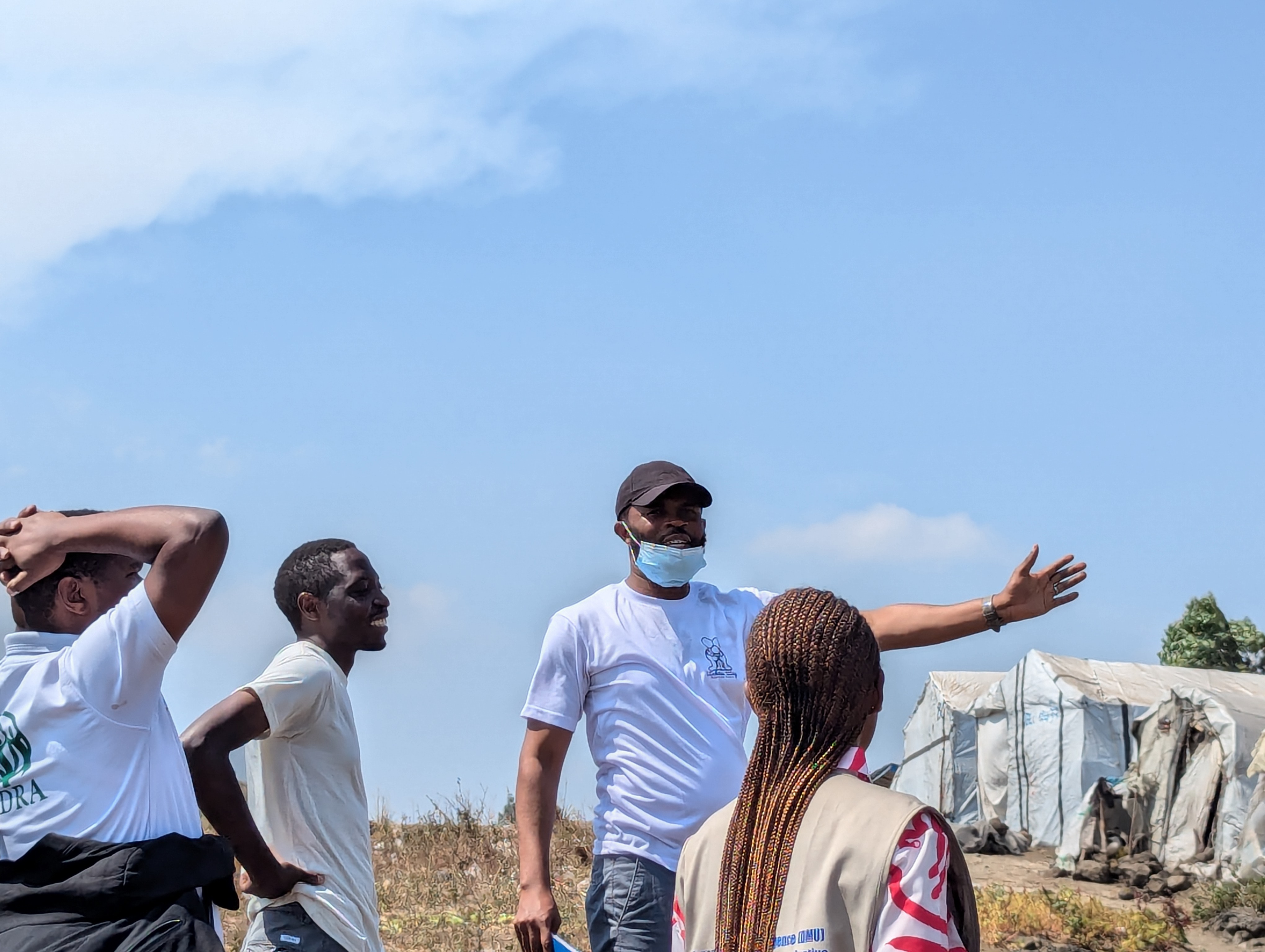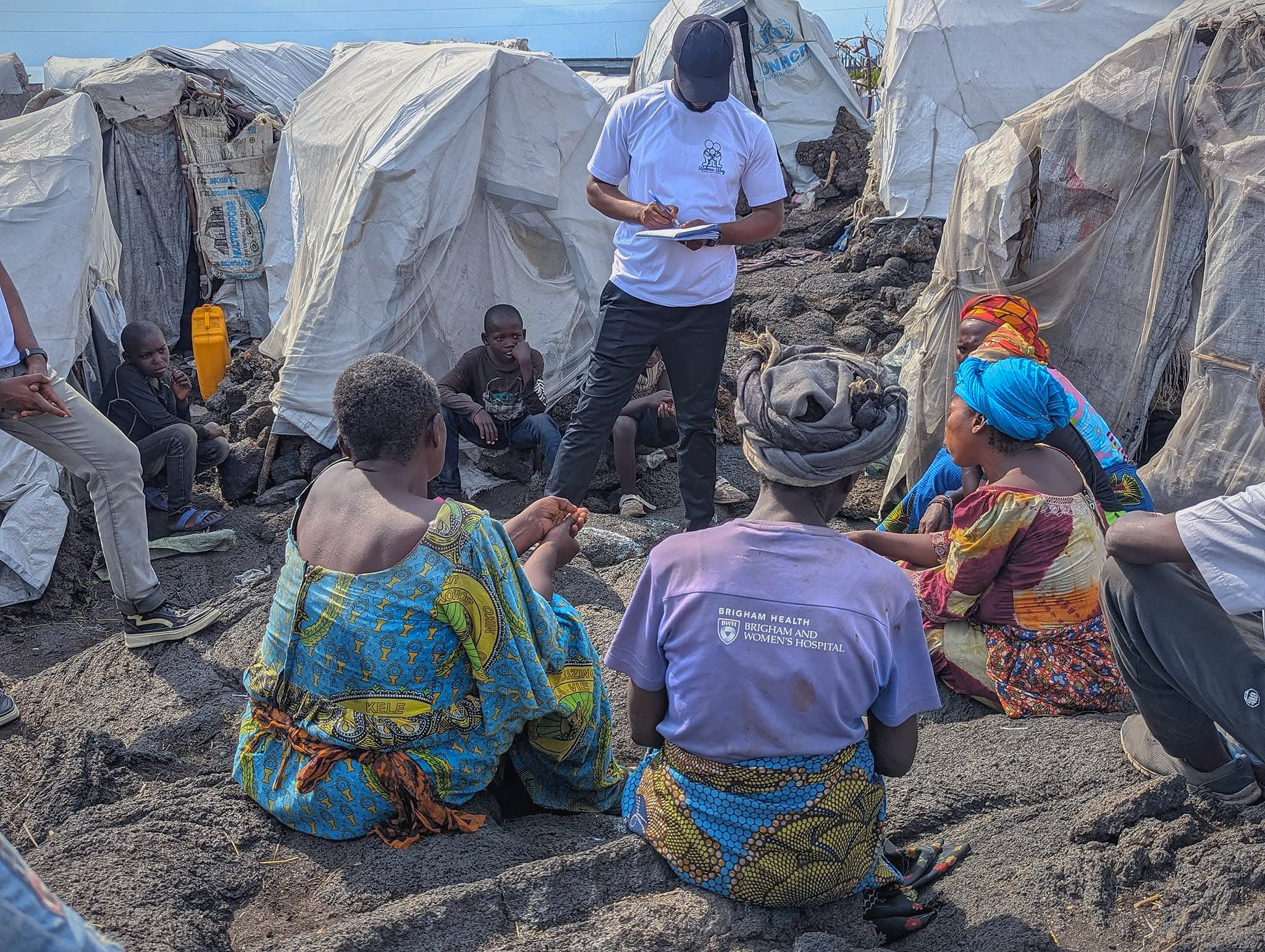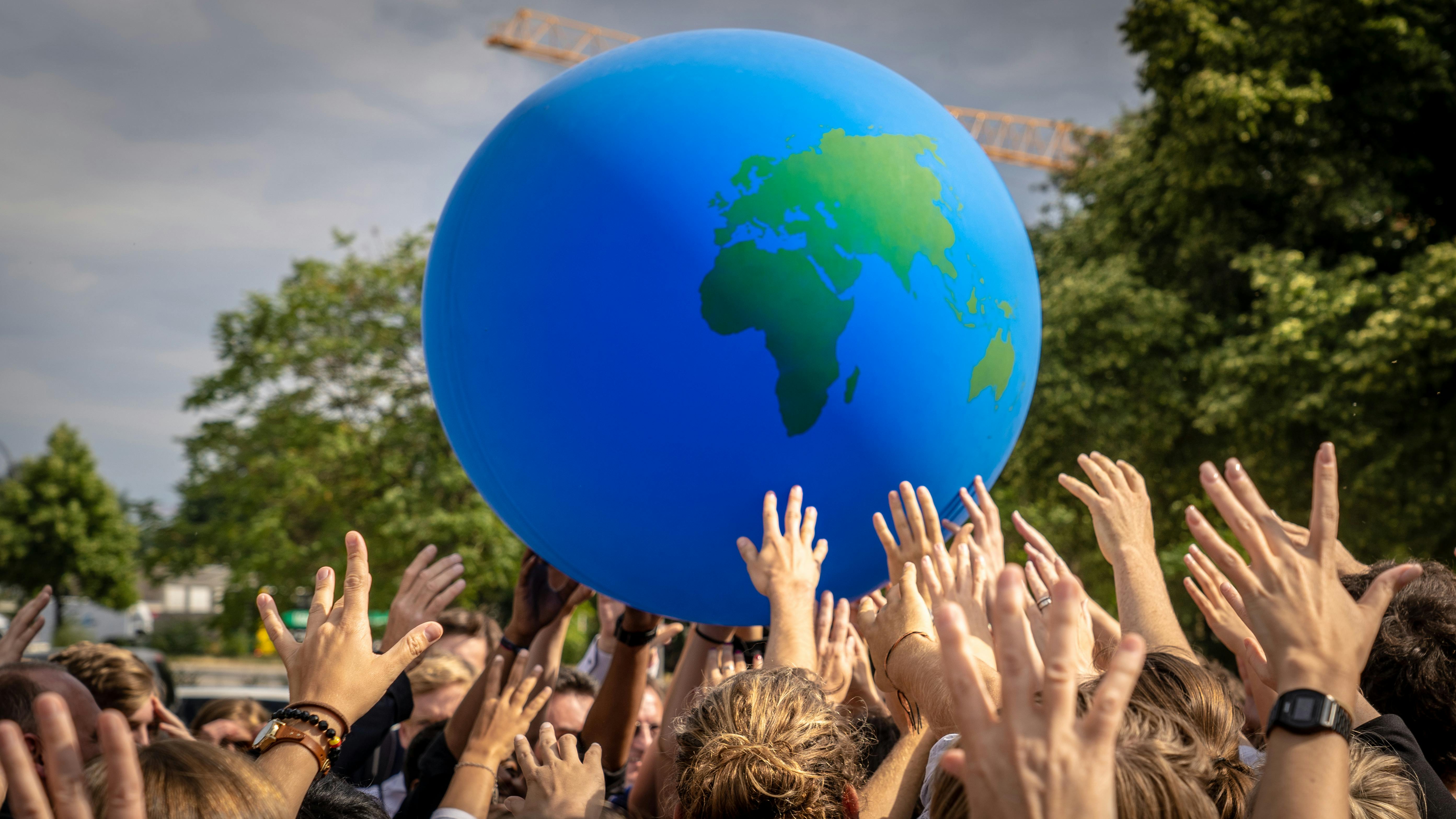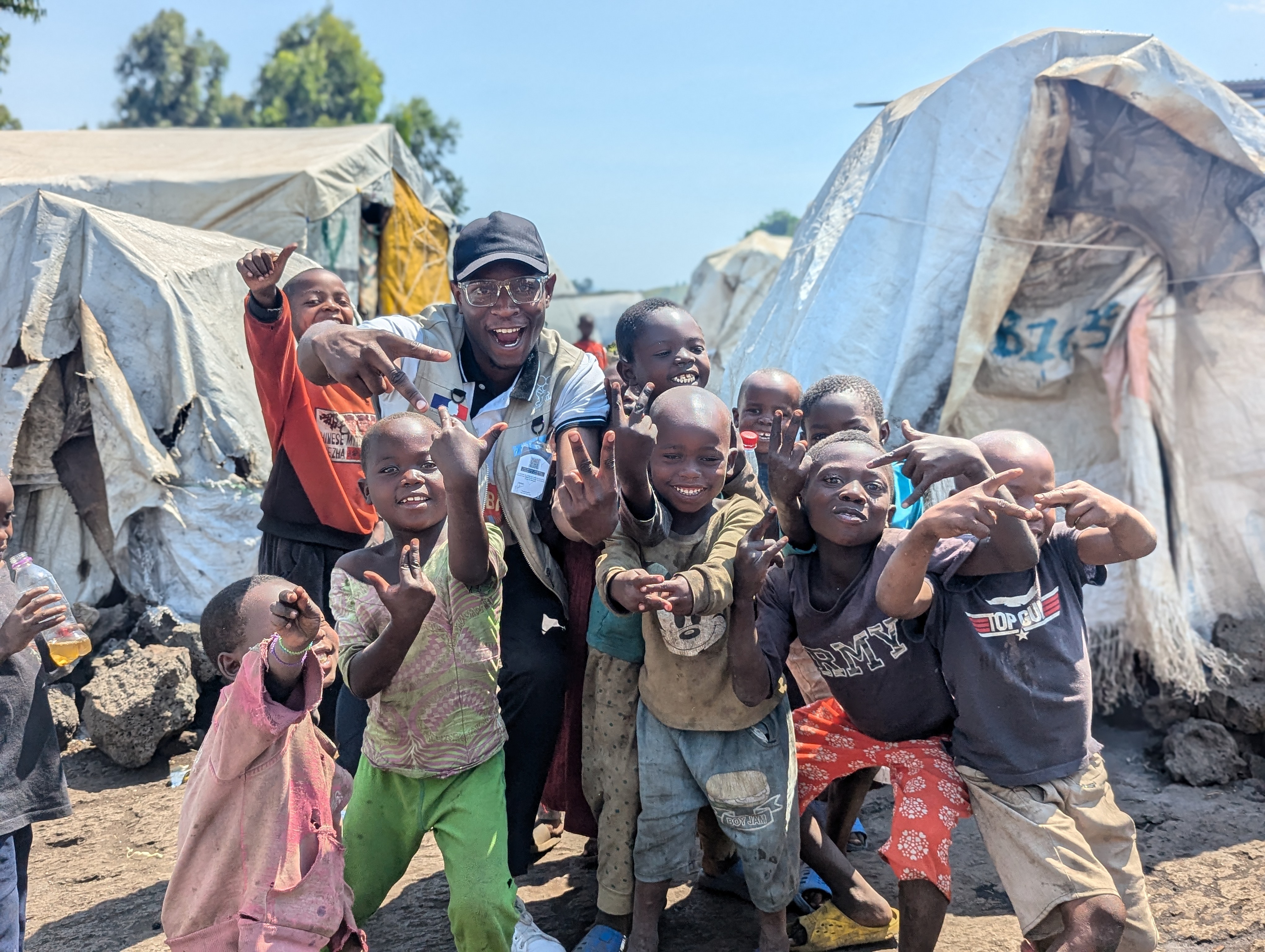OUR PARTNERSHIPS

In the heart of eastern Democratic Republic of Congo (DRC), Goma stands as a city under siege—not only by the relentless conflict with groups like the M23 rebels but also by the sheer scale of displacement and humanitarian need that defines its existence. As of March 2025, over 800,000 displaced individuals cram into camps around the city, facing harsh weather, disease, and insecurity. In this dire context, Wokovuway, a grassroots NGO dedicated to shielding vulnerable communities, recognizes a fundamental truth: no single organization can tackle such a crisis alone. Our mission to provide tents, health support, and advocacy for the displaced is magnified through strategic partnerships with a wide array of humanitarian organizations, both local and international.
These collaborations are the backbone of our operations, enabling us to pool resources, share expertise, and extend our reach to those who need it most—single mothers, orphaned children, and youth uprooted by violence. From distributing tents in sprawling camps like Lushagala to advocating for women’s rights on global platforms, our partnerships are built on mutual respect, shared goals, and a deep commitment to empowering Goma’s people. By working hand-in-hand with local groups, UN agencies, and global NGOs, we ensure that our efforts are not only effective but also sustainable, offering displaced families a chance to rebuild their lives with dignity. Discover more about our mission.
LOCAL ALLIANCES

Wokovuway’s deep roots in Goma give us a unique advantage: an intimate understanding of the city’s cultural, social, and logistical landscape. This foundation is strengthened through our partnerships with local organizations that share our vision for a resilient Goma. Groups like AGIR-DRC, a community-based organization operating across North Kivu, have been instrumental in our efforts to distribute tents and other essentials to displacement camps such as Lushagala, Bulengo, and Kanyaruchinya, where over 200,000 displaced individuals reside. AGIR-DRC’s on-the-ground knowledge helps us identify the most vulnerable families—those often overlooked in the chaos of crisis—ensuring that our aid reaches those in dire need.
Another key local partner, the Goma Women’s Collective, collaborates with Wokovuway to address the specific needs of women and girls in camps. Together, we’ve established safe spaces in Bulengo camp, providing not only shelter but also psychosocial support for survivors of gender-based violence (GBV), a pervasive issue in eastern DRC. In 2024 alone, our joint efforts reached over 3,000 women, offering them a sanctuary from the insecurity that pervades their daily lives. These local alliances allow us to navigate the region’s challenges—flooded roads, ongoing skirmishes, and cultural nuances—delivering aid with precision and care. Learn more about our local impact.
INTERNATIONAL COLLABORATIONS

While local partnerships anchor our work, our collaborations with international organizations provide the scale and resources necessary to tackle Goma’s massive humanitarian crisis. Wokovuway has forged strong ties with global players like Médecins Sans Frontières (MSF), which has been a lifeline in delivering health support to displaced communities. In 2024, MSF supported Wokovuway in setting up mobile health clinics in Lushagala camp, treating over 10,000 individuals for diseases like cholera and malaria, which spike during the rainy season. This partnership has been crucial in complementing our tent distribution efforts, ensuring that families not only have shelter but also access to medical care to survive the harsh conditions.
We also work closely with the United Nations Population Fund (UNFPA), particularly on initiatives to combat GBV and support maternal health. In early 2025, UNFPA provided funding and supplies for Wokovuway to distribute dignity kits—containing hygiene products, clothing, and sanitary items—to 5,000 women in Kanyaruchinya camp. These kits, distributed alongside our tents, offer women a sense of normalcy and protection in an environment where basic needs are often unmet. Additionally, our collaboration with MenEngage Alliance has helped us engage men and boys in GBV prevention programs, fostering community-wide change. These international partnerships amplify our reach, bringing global expertise and resources to Goma’s doorstep. Explore UNFPA’s work.
CASE STUDY

One of the most impactful examples of our partnerships in action occurred during the 2024 rainy season, when torrential floods submerged parts of Bulengo camp, displacing over 15,000 individuals within days. Wokovuway, in collaboration with the US Embassy’s humanitarian aid office in Kinshasa, launched an emergency response to provide tents and emergency supplies to the affected families. The US Embassy’s support enabled us to secure 2,000 high-quality, weather-resistant tents, which were distributed within a week, shielding families from the relentless rain and preventing a spike in waterborne diseases.
Local partner AGIR-DRC played a pivotal role in this operation, coordinating with community leaders to ensure equitable distribution. One beneficiary, Esther, a mother of five, shared her relief: “The rain had taken everything—our clothes, our food. But the tent from Wokovuway gave us a dry place to sleep. It felt like a miracle.” This operation not only saved lives but also strengthened our partnership network, proving the power of collaboration in crisis. By combining the US Embassy’s resources with AGIR-DRC’s local expertise and Wokovuway’s distribution network, we turned a potential disaster into a story of resilience. Read Esther’s full story here.
CHALLENGES IN COLLABORATION

While our partnerships have been transformative, they are not without challenges. The humanitarian crisis in Goma is staggering, with over 800,000 displaced individuals as of March 2025, and resources are perpetually stretched thin. Funding shortages are a persistent issue—by late 2023, only 43% of UNHCR’s $233 million plan for DRC was met, a trend that has likely worsened in 2025, leaving partners like Wokovuway, MSF, and UNFPA with limited supplies to distribute. This scarcity forces difficult decisions, such as prioritizing certain camps over others, often leaving families in remote areas like Kanyaruchinya without support.
Logistical hurdles further complicate collaboration. Roads into Goma are frequently blocked by fighting or rendered impassable by mud during the rainy season, delaying deliveries of tents, medical supplies, and other aid. In early 2025, the closure of Goma’s airport and restrictions on lake transport due to insecurity severed key supply routes, leaving our partners struggling to deliver promised resources. Additionally, coordinating with multiple organizations—each with its own priorities and protocols—can lead to delays and miscommunication. Despite these obstacles, Wokovuway remains committed to fostering strong partnerships, adapting to challenges with resilience and creativity. Help us overcome these challenges.
LOOKING AHEAD

Looking to the future, Wokovuway aims to deepen and expand our partnerships to meet the growing needs of Goma’s displaced communities. One key goal is to strengthen our collaboration with MenEngage Alliance, scaling up GBV prevention programs to reach 10,000 men and boys by the end of 2025. We also plan to work more closely with UNFPA to establish permanent women’s health centers in five major camps, providing ongoing maternal care and GBV support to 20,000 women annually. These initiatives will complement our tent distribution efforts, ensuring holistic support for displaced families.
Internationally, we hope to partner with additional organizations, such as the International Rescue Committee (IRC), to improve water and sanitation in camps, addressing the root causes of disease outbreaks that threaten unsheltered families. Locally, we aim to train 500 community leaders in partnership with AGIR-DRC over the next two years, empowering them to lead aid distribution and advocacy efforts in their own camps. These ambitious goals hinge on increased funding and support, but with our partners by our side, we believe a stronger, safer Goma is within reach. Together, we can shield more families, rebuild more lives, and create a future where displacement does not mean despair. Join us in building this future.
